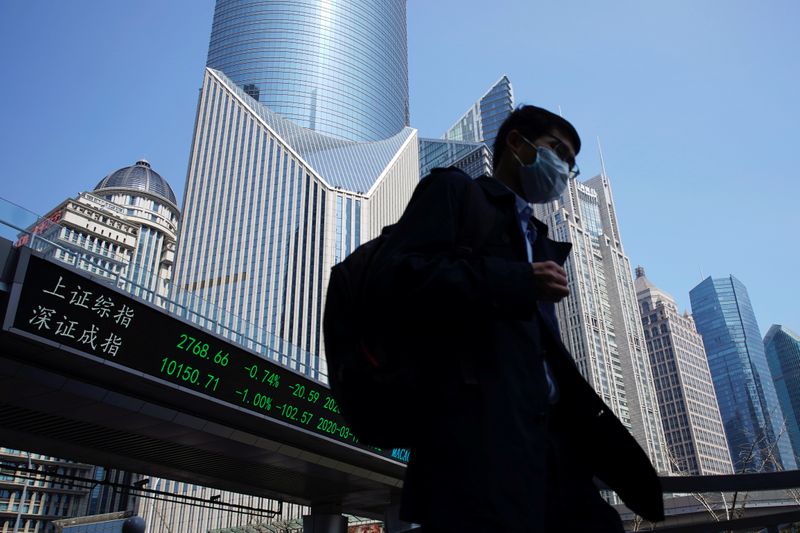By Tom Westbrook and Yoruk Bahceli
SINGAPORE/AMSTERDAM (Reuters) - Low yields at home are sending some previously shy European investors into Asia's credit markets, money managers say, lured by the promise of higher returns and a hope that rebounding economies can hold defaults at bay.
Unlike in Europe or the United States, Asia's central banks have not stepped in to put a floor under corporate debt prices. That has the market's recovery in Asia trailing the rest of the world.
"Now people are looking for the valuation gap to close," said Hayden Briscoe, head of Asia-Pacific fixed income at UBS Asset Management.
Starting with family offices, then private banks, flows from Italy, Germany, Switzerland and the United Kingdom have broadened over the past few months, he said.
"I don't think it's slowing down," he said. "We haven't had a day of outflows, it's just been continuous."
Like elsewhere Asia's junk bond spreads, the premium over safer assets that buyers demand for riskier debt, have narrowed sharply since March.
But Asian high yield <.MERADHY> still offers a rich 686 basis points over safe-haven benchmarks, which is at least 200 basis points more than what European (MERHE00) or U.S. (MERH0A0) junk debt offers.
At the same time Asia's economies, especially China which dominates the region's $260 billion high-yield market, are emerging in better shape from the coronavirus crisis.
Asia is the only region Goldman Sachs (NYSE:GS) Asset Management says it expects to grow this year, and as a consequence, it forecasts junk default rates at 4% compared to 8% in the United States for 2020.
"When you have a market that is giving you sufficient yield and is not necessarily any more risky, it becomes a market that people at least have to look at," said Elizabeth Allen, head of credit research, Asia-Pacific at HSBC Global Asset Management.
"Rather than just - 'Oh this is Asia, I don't know about it, never mind about it' - that mindset is rapidly changing."
(Graphic: Asian corporate debt sits at attractive levels, https://fingfx.thomsonreuters.com/gfx/mkt/xlbvgljkjpq/asian%20high%20yield.png)
BEST (NYSE:BEST) IN CLASS
Along with the asset management arms of UBS, HSBC and Goldman, J.P. Morgan Asset Management, Pictet Wealth Management and Credit Suisse (SIX:CSGN) are among advisors to sound upbeat on Asian credit.
Goldman Sachs Asset Management, like UBS-AM's Briscoe and HSBC Global Asset Management's Allen, told Reuters it has noticed demand from Europe lately.
Beyond the economic factors, the composition of Asia's debt market is another attraction, investors say, because exposure to sectors hardest hit by the virus - such as energy, travel and other cyclicals - is lower than in Europe or the United States.
"The dominant sector is really the Chinese property names," said Tiansi Wang, Senior Credit Analyst at Dutch fund manager Robeco in Hong Kong, adding the well-capitalised industry is driven by supportive domestic factors.
"That makes a big part of Asia's high-yield market run low-correlation with the global high-yield market," she said.
To be sure, Asia is still home to plenty of risky companies vulnerable to going broke and burning their bondholders.
U.S. and European investment in Asian bonds comprises only about 16% of the total, according to J.P. Morgan Asset Management.
But interest in recent deals such as last week's nearly 13-times oversubscribed Tencent Music's (N:TME) $800 million debt sale, of which about two-thirds went to EMEA and U.S. buyers, suggests at the very least a more receptive audience abroad.
"We expect the region's positive growth trajectory, highly-supportive policies and the global grab for yield to continue to sustain demand for Asian dollar credits," said Shaw Yann Ho, head of Asia fixed income at J.P. Morgan Asset Management.

(This story refiles to add full titles for banks' asset management arms in paragraphs 12 and 13)